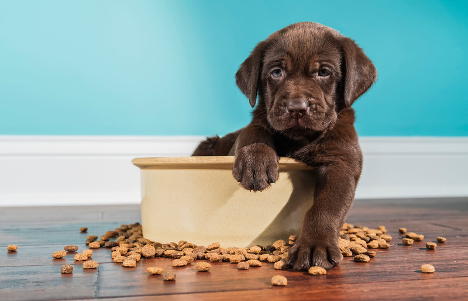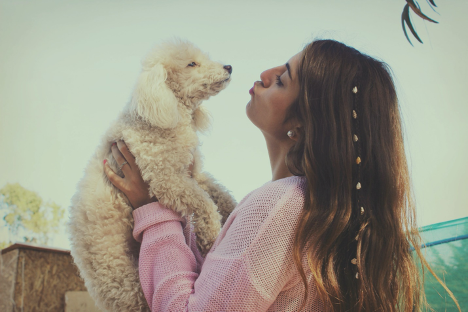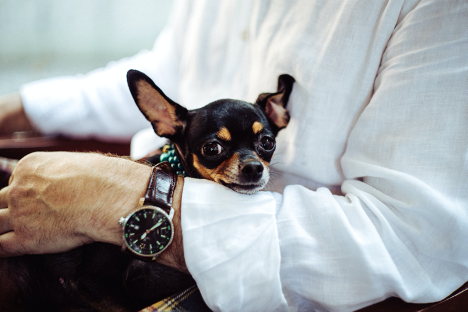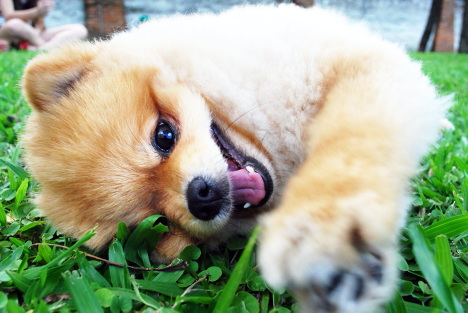Difference Small Breed and Large Breed Puppy Foods
2020.07.16

Small breed puppy or giant breed puppy? This has got to be the question on every dog owner’s mind. As a soon to be dog owner, you have every right to think through your dog size before getting one because apparently size does matter! See, every dog is different and unique, and this reflects in their diet in every possible way.
Most dog owners prefer small breed dogs as they have a longer life span than large breed dogs. On the flip side, large breed dogs are good with kids or instead more accepting with kids compared to smaller dogs. The nutritional diet is specific to the dog size. Why and how, you may ask? Ever heard the saying you are what you eat? This also applies to your furry friend. Both small and giant breed dogs are susceptible to specific disorders and health conditions. What’s interesting is that with the right diet, you can prevent this.
Let’s talk about the differences
Large Breed Dogs
Large breed dogs put a lot more pressure on their joints, and over time it takes a toll on them. Hence, dog breeds that grow to be bigger require pet food that supports the growth of strong and healthy bones. You will notice that foods formulated for these dogs are optimally rich in calcium for proper and controlled bone development. Food designed for large breed puppy is a little limited in energy or calorie to support their bones and joints at the rate at which they grow.
Large breed dogs are also highly susceptible to joint issues, so keeping a diet specific to this breed ensures the dog grows and develops healthily and agile as it should be.
Nutritional needs of Large Breed Pups

● Calorie Count
It may sound contradictory, but large breed dogs require a lower calorie diet than the small breed pups. This is because large breeds do not burn through the calorie as fast due to their slower metabolic rates. Also, because of their large stomachs, large breed pups will need a higher volume of food intake that sustains them, keeping them full and comfortable throughout the day. As stated, this large volume of food needs to be lower in calories.
● Minerals and nutrients for bone development
Due to the nature of their stature, large breed dogs benefit from the right balance of vitamins and nutrients. Feeding formulas containing slightly lower concentrations, yet the right balance of calcium and phosphorus, is shown to reduce the incidence of orthopedic disease in large breeds. Glucosamine helps maintain healthy joints and fiber blends. This, together with chondroitin, boosts your pup’s joint health keeping arthritis at bay. Large breeds in their senior years are prone to getting arthritis due to their large frames and propensity.
● Other essential nutrients.
To aid in digestion, prebiotics goes a long way in boosting the levels of gut bacteria for optimal absorption. A good quality large breed food should also contain EPA to help protect joints and taurine from supporting heart health. These essential nutrients are to be found in dog packaging formulas. Carefully read through the packaging to ensure you are bringing home the right nutrients to your dog.
Small Breed Dogs
Small breed puppies have a high metabolism, which helps them burn calories quickly, usually in hours. Due to this, they need to consume more calories per pound of weight than large breed pups. ThePets highlights before choosing food for small breed puppy it needs to remember that all the way from puppy stage to fully grown, these little guys are feeders, and yes, they definitely need the calories but carefully, so they don't get overweight. This goes back down to portioning your dog's meals. You can follow the feeding guide on dog food packaging materials or refer to your vet. In summary, dogs should eat smaller, calorie-dense meals.
Nutritional needs of Small Breed Puppy

● Kibble size
The size of the kibble must suit the size of the dog. Small dogs need a kibble they can easily chew and digest. This also aids in minimizing waste, and the dog can get the most from their diet. Kibble is formulated with the dogs' jaw size in mind as you will notice that kibble for smaller breeds is smaller than kibble for large breeds.
● Nutritional value
Small dogs are always full of energy, especially when they are still pups. This, as discussed above, is mainly due to their high metabolic rate, making them burn down the calories faster and, in turn, they get hungry again in a few hours. Smaller breed dogs like pooches should eat smaller calorie-dense meals with more high-quality proteins and fats at least three to four times daily for optimal health. If a small breed pup doesn’t take insufficient calories over a frequent period, they are most likely to develop hypoglycemia resulting in weakness, lethargy, muscle tremors, seizures, and in the worst cases, death.
● Calorie Count
The difference in metabolic rate between small and giant breed dogs continues all the way into adulthood. This simply means small dog breeds need to take in more calories per pound than large dogs. Taking the example of a ten-pound dog and a 100-pound dog. A ten-pound dog would typically require 400 calories per day to maintain a healthy weight while the hundred-pound dog would need 2250 calories per day. This is where the math comes in and reveals that a small dog needs 40 calories per pound while the hundred-pound dog only needs 22.5 calories per pound. This, combined with the fact that small dogs have tiny stomachs, brings to sense the designing of little breed food.
● Feeding essentials
Smaller dogs are more prone to gastrointestinal upsets and dental issues, so feeding them a diet specific and right helps manage these issues. You should leave your dog food out in smaller bite-sized portions for your little dog to eat it whenever. However, start training your puppy on good eating habits, so he learns not to overindulge later in life. A point to note is that small breed dogs tend to live a long time and have high dietary levels of antioxidants that help prevent free radical damage over such a long-life span.

Small breed dog lovers will always vouch for small breeds with qualities as they make the best travel buddies, they cost less in terms of food and veterinary costs. And they make great couch potatoes, so you never get to binge alone!
Large breed dog lovers also got a lot of compliments to go for their giant dogs from being good watchdogs to being easy to train.
The choice when deciding to buy breed size is always up to the new owner. All dogs require special care and, most notably, the nutrition department from the puppy stage to senior years. As a dog owner, you can tweak your dog's diet based on the most common health issues he may have. All in all, maintain a healthy and well-balanced diet for any breed-sized dog and watch your pup grow into a healthy and happy dog.
More Articles
Copyright © Fooyoh.com All rights reserved.